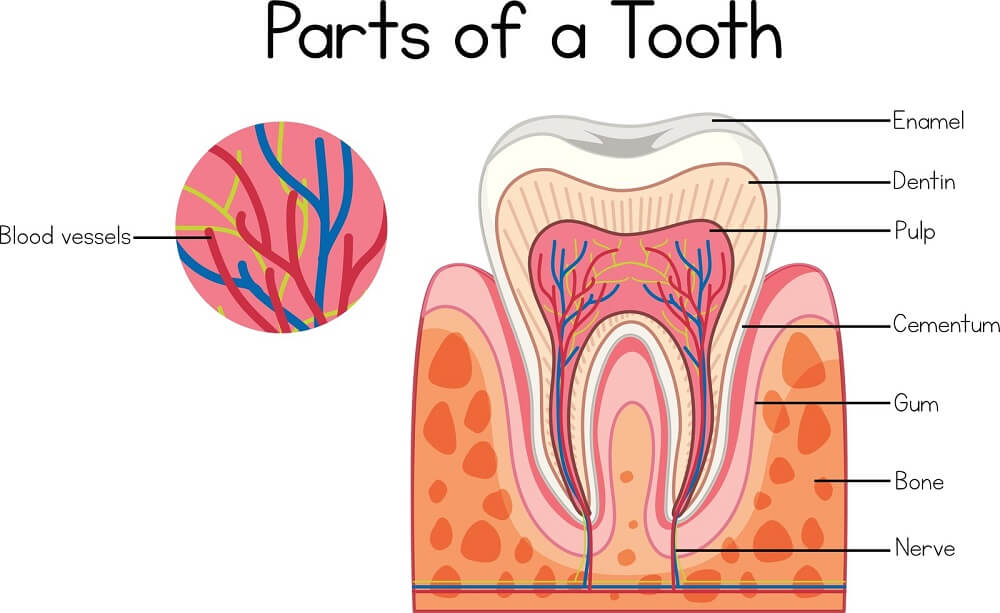When it comes to dental operations, the word “root canal” often conjures up visions of pain and anxiety. While root canals are generally connected with molars and premolars, what happens if you require a root canal on a front tooth?
In this blog post, we will look into the complexities of root canal therapy in York for front teeth, including why you might need one, the procedure itself, and what to anticipate during and after treatment.
Understanding the Need for a Root Canal on a Front Tooth
Front teeth, also known as incisors and canines, play an important role in our smile, speech, and overall appearance. They are in charge of biting into food and play an important function in how we feel about ourselves.
Despite being smaller than molars, front teeth are prone to dental disorders that may necessitate root canal therapy near you. Some of the most prevalent causes for requiring a root canal on a front tooth are:
- Deep Decay: When a cavity grows deep into the tooth, it can reach the pulp, which contains the nerve and blood vessels. A root canal may be required in these situations to remove the infected pulp and preserve the tooth.
- Trauma: A front tooth injury or trauma might cause pulp damage. A root canal may be necessary if the tooth gets infected or develops irreversible pulpitis (inflammation of the pulp).
- Cracked or Fractured Tooth: A front tooth crack or fracture can expose the delicate inner layers to microorganisms, resulting in infection or inflammation. A root canal can help relieve discomfort while also saving the tooth.
The Root Canal Procedure for Front Teeth:
The root canal surgery for front teeth is similar to the procedure performed for molars, although there are a few significant differences. Here’s an overview of what to expect:
- Examination and Diagnosis: Our dentist in York will inspect the damaged tooth and can perform X-rays to determine the extent of the damage. They will determine whether a root canal is required and will go over the process with you.
- Anesthesia: Local anesthetic will be used to numb the area around the tooth, enabling a pain-free root canal procedure.
- Access and Cleaning: To access the pulp chamber and root canals, your dentist will drill a tiny access hole in the tooth. The diseased or damaged pulp will be carefully removed, and the canals will be cleansed and disinfected effectively.
- Filling and Sealing: After the area has been cleaned, it will be filled with gutta-percha, a rubber-like substance that closes the canals and prevents further infection.
- Restoration: Following the completion of the root canal, your dentist will discuss alternatives for restoring the tooth’s aesthetics and functionality. This might include the placement of a dental crown or other restorative options.
Post-Treatment Care and Expectations
It is common to experience slight discomfort or sensitivity after a root canal procedure on the front tooth, which may be handled with over-the-counter pain and medication. Your dentist near you can prescribe some antibiotics. Maintaining proper oral hygiene practices, such as brushing, flossing, and getting regular dental check-ups, is essential.
In some cases, your dentist might recommend further cosmetic treatments to improve the appearance of the treated tooth, such as teeth whitening or veneers.
However, every person’s healing process is unique so if you have any unexpected or persistent soreness, swelling or other concerns, consult with your dentist immediately for further evaluation and assistance.
Experience Expert Care for Your Front Teeth!
If you require a root canal on a front tooth and are looking for a reliable dental center to provide the necessary treatment, consider visiting Caledonia Crosstown Dental Centre. Here you can expect a comprehensive examination, a personalized treatment plan, and a comfortable experience.
Contact us to schedule a consultation and take the first step toward saving your smile!

